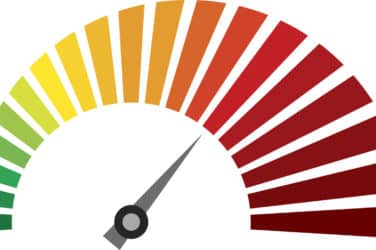
In an important step for carbon markets, and key milestone for the Carbon Opportunities Fund and Sumitomo Corporation of Americas (SCOA) announced one of the first transactions of tokenized carbon credits leveraging the Climate Action Data Trust (CAD Trust) built on the Chia blockchain.
“We are delighted to see that our partnership with the Carbon Opportunities Fund is helping to direct the markets toward innovative and digital solutions that drive investments to climate through high integrity and high value carbon credits,” said Alfonso Garcia Mora, Vice President for Europe, Latin America and the Caribbean at IFC. “These initial projects in Latin America help to prove the architecture and mechanism of IETA’s CAD Trust that will hopefully normalize carbon credits in the global financial markets.”
The transactions saw SCOA purchasing the first batch of carbon credits tokenized on the Chia blockchain, demonstrating the successful implementation of the Fund’s concept and vision, utilizing the Climate Action Data Trust (“CAD Trust”), a part of the World Bank’s effort through the Climate Warehouse to create an end-to-end digital carbon market infrastructure to increase transparency and quality of carbon credits. This diverse participation from various industries and global organizations underscores the potential of technology and tokenization in driving efficiency, increasing transparency, and fostering trust in the voluntary carbon markets.
“The decentralized nature of blockchain technology makes it highly resistant to tampering or fraud. This can provide additional assurance to participants in the carbon market that their transactions are secure,” said Mark Lyra of SCOA. “In addition, interoperability is potentially disruptive. Chia and CAD Trust can facilitate the integration of different carbon markets, making it easier for participants to trade credits across borders and platforms. This can increase the liquidity and overall value of the carbon market, including the creation of new carbon asset classes.”
Working with EcoRegistry, a carbon registry, the Fund minted (tokenized) 10,000 tons of carbon on the Chia blockchain, minted as Chia Asset Tokens. Once the carbon credits are minted, the Fund is able to simply execute the transactions by sending the tokenized carbon credits to the purchasers. Some of the credits have been already retired on the Chia blockchain, and EcoRegistry subsequently marked the units as retired in its registry and in the CAD Trust.
“Creation of digital carbon (‘token’) assets is an important component of the effort of the Climate Warehouse program to increase traceability and fungibility of high-integrity carbon markets,” said Hania Dawood, the Manager for the World Bank’s Climate Finance and Economics group. “IFC’s successful tokenization with registries managing the digital carbon assets though the full transaction cycle will allow the more liquidity and greater participation in the carbon markets.”
“These first set of transactions completed on chain are an important milestone for the industry as a whole, and represents a huge amount of work done at an infrastructure level”, said Dr Manuel Piñuela, CEO of Cultivo. “Blockchain can bring much needed trust and transparency to the voluntary carbon markets, including the areas of improvement at a project level, and we’re looking forward to exploring how we can now scale this initiative with other registries and progressive corporations buying carbon credits.”
Shaping the Future of Carbon Markets
The Fund applies an innovative and tech-forward approach to deploying capital to the Voluntary Carbon Markets. Cultivo’s data-driven process selects high-quality nature-based projects and, in turn, the carbon credits are tokenized on the Chia blockchain and will be tracked by the CAD Trust, a partnership of the Government of Singapore, International Emissions Trading Association and the World Bank. The tokenization and tracking on the CAD Trust platform enhances the transparency and secures the integrity of carbon trading while contributing to the global effort to mitigate climate change.
IFC—a member of the World Bank Group—is the largest global development institution focused on the private sector in emerging markets. We work in more than 100 countries, using our capital, expertise, and influence to create markets and opportunities in developing countries. In fiscal year 2021, IFC committed a record $31.5 billion to private companies and financial institutions in developing countries, leveraging the power of the private sector to end extreme poverty and boost shared prosperity as economies grapple with the impacts of the COVID-19 pandemic.
Source: IFC





